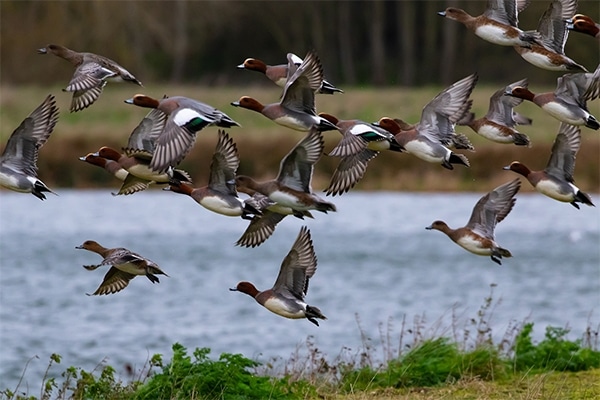
Project Penelope
Project Penelope is a project led by the Waterfowlers’ Network aiming to improve data collection, waterfowl habitats and sustainable management of waterbirds.
Get information on the legal shooting season for mammals and birds in the UK.
Learn about our current conservation projects and how you can get involved.
Comprehensive information and advice from our specialist firearms team.
Everything you need to know about shotgun, rifle and airgun ammunition.
Find our up-to-date information, advice and links to government resources.
Everything you need to know on firearms law and licensing.
All the latest news and advice on general licences and how they affect you.
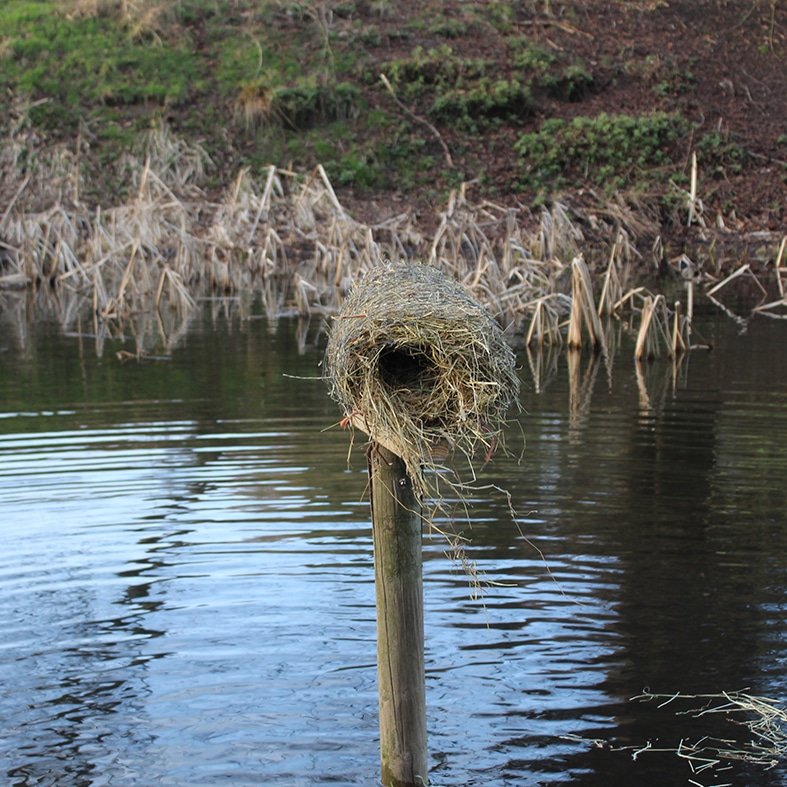

Conservation in Action Conservation projects Duck nest monitoring project
Initiated by The Waterfowlers’ Network (of which BASC is a member) in 2021, the Duck Nest Monitoring Project is a citizen science project dedicated to the conservation of wild mallard populations.
The project aims to monitor mallard breeding success when artificial nesting structures, such as raised nesting tubes or boxes, are installed at a site.
Mallard numbers are decreasing across the UK and Europe. In order to continue sustainable shooting of this species we must establish an effective way to maintain and protect our wild populations.
Mallard are ground-nesting birds and as a result, they often face disturbance such as trampling from livestock, predation, and dog walkers.
This frequently results in the destruction of the nests before the eggs have a chance to hatch.
Duck nest tubes are a great solution to this problem. By raising the nests off the ground and covering them from flying predators, the chances of nest disturbance or destruction are considerably lower, resulting in increased brood sizes and hatching success.
1. Make and install a mallard nest tube on the land you own or shoot over
Duck nest tubes are simple to set up and anyone can take part in helping to improve the wild mallard population in their area. It can take several years before the tubes are used, but don’t lose hope – once they are occupied, the ducks and their offspring will likely return year after year to nest in the same spot.
How to set up a duck nest tube:
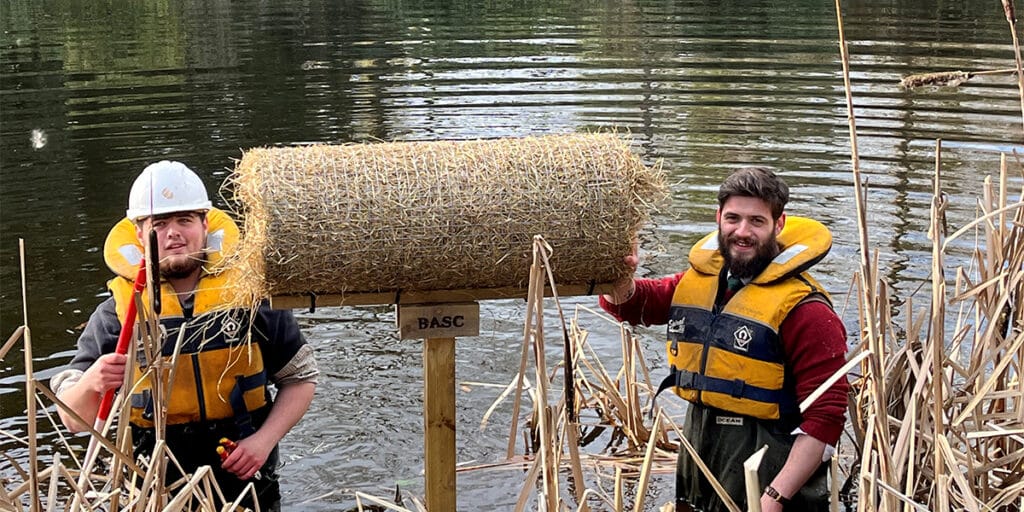
2. Record as much of the following information as you can:
3. Once you have recorded as much information as you can, use the Waterfowlers’ Network online form to register your findings at the end of the mallard breeding season.
We recommended that you register your findings at the end of the season (end of August) to ensure no nesting attempts are missed.
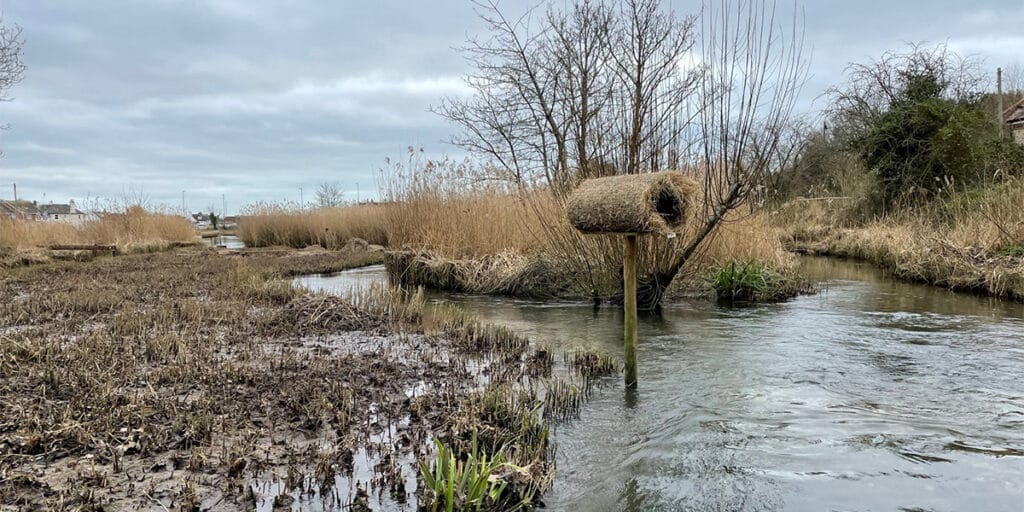
Duck nest tubes have been shown to improve wild mallard populations by increasing brood size and hatching success across their range.
The security and protection provided by nesting tubes can improve the chance of hatching success to 90%, compared to the less than 15% chance of success in ground nests.
In 2022, we obtained data from 215 nests across the UK, and of those that were occupied, 97% had successful hatching!


Project Penelope is a project led by the Waterfowlers’ Network aiming to improve data collection, waterfowl habitats and sustainable management of waterbirds.
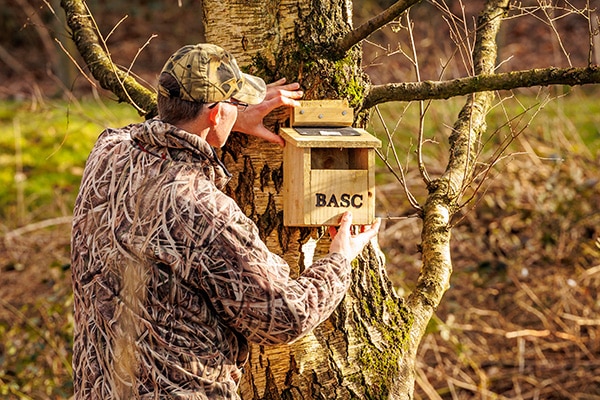
Find out more about the conservation projects we are currently undertaking and how you can get involved.
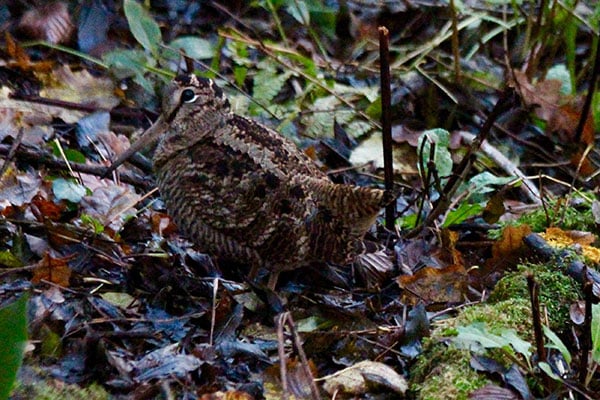
Given that British woodcock populations are declining, it is important to understand the population in Northern Ireland.
Sign up to our weekly newsletter and get all the latest updates straight to your inbox.
© 2023 British Association for Shooting and Conservation. Registered Office: Marford Mill, Rossett, Wrexham, LL12 0HL – Registered Society No: 28488R. BASC is a trading name of the British Association for Shooting and Conservation Limited which is authorised and regulated by the Financial Conduct Authority (FCA) under firm reference number 311937.
If you have any questions or complaints about your BASC membership insurance cover, please email us. More information about resolving complaints can be found on the FCA website or on the EU ODR platform.
This website uses cookies so that we can provide you with the best user experience possible. Cookie information is stored in your browser and performs functions such as recognising you when you return to our website and helping our team to understand which sections of the website you find most interesting and useful.
Strictly Necessary Cookie should be enabled at all times so that we can save your preferences for cookie settings.
If you disable this cookie, we will not be able to save your preferences. This means that every time you visit this website you will need to enable or disable cookies again.
This website uses Google Analytics to collect anonymous information such as the number of visitors to the site, and the most popular pages.
Keeping this cookie enabled helps us to improve our website.
Please enable Strictly Necessary Cookies first so that we can save your preferences!
More information about our Cookie Policy